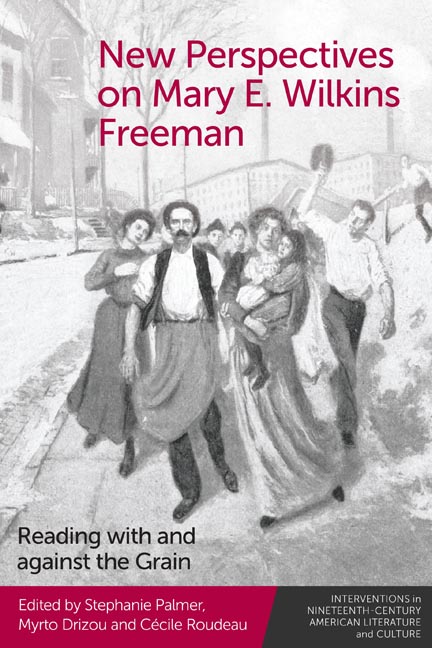Book contents
- Frontmatter
- Contents
- List of Figures
- Acknowledgments
- Contributors
- Reading Freeman Again, Anew
- Part I Kinship Outside of Normative Structures
- Part II Violent, Criminal, and Infanticidal: Freeman’s Odd Women
- Part III Women’s Work: Capital, Business, Labor
- Part IV Periodization Reconsidered
- Afterword: Why Mary E. Wilkins Freeman? Why Now? Where Next?
- Index
11 - Mobilizing the Great War in Mary E. Wilkins Freeman’s Edgewater People
Published online by Cambridge University Press: 20 October 2023
- Frontmatter
- Contents
- List of Figures
- Acknowledgments
- Contributors
- Reading Freeman Again, Anew
- Part I Kinship Outside of Normative Structures
- Part II Violent, Criminal, and Infanticidal: Freeman’s Odd Women
- Part III Women’s Work: Capital, Business, Labor
- Part IV Periodization Reconsidered
- Afterword: Why Mary E. Wilkins Freeman? Why Now? Where Next?
- Index
Summary
Mary E. Wilkins Freeman is not a writer that appears in discussions of the literature of the Great War, yet a slender selection of stories in her 1918 collection Edgewater People—“The Liar,” “Both Cheeks,” and “The Soldier Man”— engage with the war in prominent and surprising fashion. In her introduction, Freeman suggested that she wanted to represent how communities came to resemble individuals; her portrait of Edgewater in a time of international conflict registered the energies and identities of mobilization, and the rich passions of pacifism and militarism. With their depictions of the home front during the Great War, these stories remain under-covered additions to the canon of American war writing, challenging our understanding of the typical modes of representing war experience. They reveal some of the resilience and flexibility of Freeman’s recognizable style, including her penchant for the mundane choices that make up everyday ethics, the small yet dramatic reversals of fate and fortune, and the powerful illusions people make and embrace.
Yet Edgewater People presents few of the ideological signs marked by historians of the Great War. Freeman’s collection holds little to no interest in European or ethnic loyalties; it offers no clear or direct Progressive Era obsessions with reform; it refuses to parrot the enlightened assumptions of Wilsonian foreign policy. But these stories enter, often directly, into the maelstrom of conversation over one of the largest social experiments ever undertaken in America: the mobilization of millions of people towards an overt war effort in 1917–18. The precise numbers are staggering. The Great War institutionalized the modern mass American military by transforming it from a peacetime outfit of under 300,000 active troops and reservists into just under 4 million soldiers, three quarters of whom were conscripted. Mobilization on this scale involved an energetic propaganda that mixed volunteerism and coercion in order to convert American popular opinion away from Woodrow Wilson’s famous palliatives—“impartial in thought as well as in action,” his declaration of neutrality in August 1914, and “He has kept us out of the war,” his 1916 reelection campaign slogan—towards a modern fight to make the world safe for democracy.
- Type
- Chapter
- Information
- New Perspectives on Mary E. Wilkins FreemanReading with and against the Grain, pp. 203 - 218Publisher: Edinburgh University PressPrint publication year: 2023



